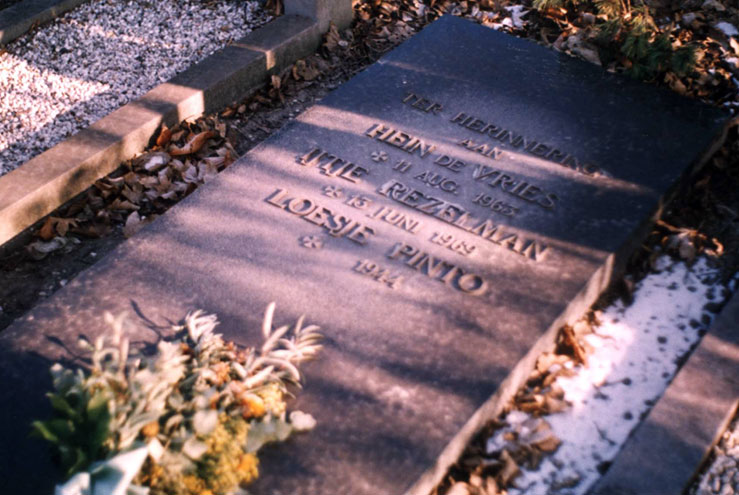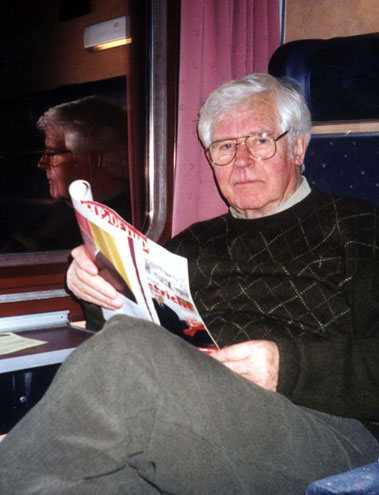Remembering Little Loesje
Jacob and Wijntje de Vries lived with their two young children in the village of Nieuwe Niedorp in northern Holland. Jacob was a carpenter; Wijntje was a homemaker and took care of the children at home.
One day in the summer of 1942, after the onset of the deportations of the Jews from Holland to “the East”, a student, who was a courier for the ASG student underground group in Amsterdam, approached the de Vries family, asking them to hide a Jewish child. The de Vrieses, who had two children of their own, decided to accept the offer despite the risk that was involved in hiding Jews, and soon four year-old Louise Pinto was brought to their home.
The little girl, whose nickname was Loesje, soon became an integral part of the expanded family; they treated her as if she were their own, and she became friends with the de Vries children. Attentive to the difficulty Luise's parents must have felt when they had to part from their child, Jacob and Wijntje de Vries, traveled to Amsterdam, soon after the girl’s arrival, to meet her parents in person, and to assure them that their daughter had found a good home. It is difficult to imagine the extent of fear and despair that must have lead parents to part from their children and to hand them over to total strangers. This human gesture on the part of Jacob and Wijntje de Vries probably was enormously comforting to Louise's parents, and we may assume that when Izek and Rozalia Pinto were arrested and deported to the Sobibor extermination camp in July 1943, they must have held on to the thought that at least their daughter was safe and with a loving family.
The de Vries family tried to give Louise a normal life as much as possible. She was allowed to play outside and was taken on family visits. She also played with another Jewish girl, Louise Sachs (later Joseph), who was in hiding with the Lodders, a family of friends who lived close-by. In 1943, however, the family's quiet life was disturbed. They were betrayed, and Jacob was arrested. When Wijntje went to visit her arrested husband, she asked the grandparents to guard the three children. During her absence the Dutch police raided the de Vries home. The grandparents were beaten, and Louise was discovered and taken away. The little five-year-old girl was deported and murdered in Auschwitz.
Jacob de Vries was taken to the Vught concentration camp, where he endured severe beatings. On April 20, 1944, he was among the few who were released on the occasion of Hitler’s birthday. Both Jacob and Wijntje de Vries never recuperated from the loss of Louise, the little girl they had so much wanted to save. Although she had only been with them for a year, they never forgot the little girl that had been gassed in Auschwitz, and who like her parents and millions of other victims of the Holocaust, had no grave. Remembering little Louise until their last day, Jacob and Wijntje de Vries instructed that her name would be added to the tombstone of the family grave.
On May 26, 2002, Yad Vashem recognized Jacob de Vries and Wijntje de Vries-Frielink as Righteous Among the Nations.







